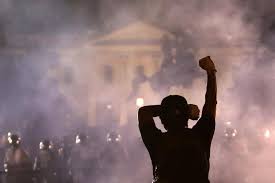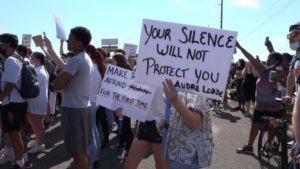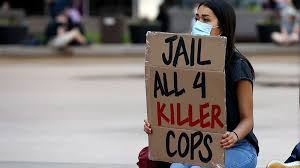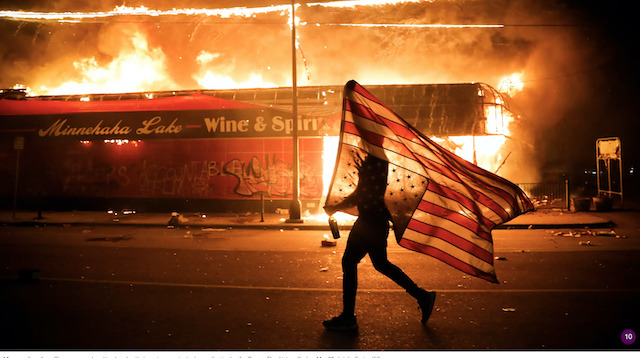I have written previously about being a huge fangirl for Rich Roll. I discovered him as I researched running (I was recovering from an injury of the physical and an injury of the spiritual at the time) and he popped up alongside Scott Jurek and other ultra athletes, but he was different – he spoke about addiction, and he spoke about being plant based. He’s roughly my age, so he and I have similar temporal touchstones, but little else (outside of a fairly strong understanding the import of the words, “What we used to be like, what happened, and what we are like now”). Anyway – suffice it to say that listening to Rich’s podcasts is a big and important part of my current attempt to figure myself out and be who I’m supposed to be right now. I have written Rich countless emails in my head as I’m running or making yet another wonderful smoothie from his cookbook. One of the few things I have actually, formally requested for a birthday gift was an autographed copy of his memoir. Which, of course, Gary got me.
I listened to a portion of one of his more recent podcasts today and he opened up by bringing up the ongoing protests all around the world, relating to the murder by police of an African-American man named George Floyd. Of course, the protests don’t just have to do with Mr. Floyd, but a list longer than can be created of people of color who have been beaten, abused, raped, and killed by cops. The violence in the form of looting is nothing compared to the violence that is inflicted every day, every moment, against people of color here in the U.S., largely by the police, but more generally by the systems in place that allow this to go on without comment by the general public.
The biggest benefit of privilege is being able to ignore it.
Rich said in his podcast that
The truth is that I am a beneficiary of systemic racism. As a white man, my life is the result of tremendous privilege. I can walk down any street without unease. I can run anywhere without apprehension. And everywhere I go, doors swing open. Because of this, it doesn’t feel right to weigh in on this historic moment of cataclysm. And yet what is the point of this privilege if it isn’t used to empower the voices that too long have gone unheard?
Roll, Rich. richroll. “I don’t know how to say the right thing.” Instagram. 31 May 2020, https://www.instagram.com/p/CA3mCp1pxg2/
As a white woman, I benefit daily – hell, hourly, moment by moment – from my privilege. I can work from home during this quarantine, and so don’t have to worry about my employment options running counter to my health needs. I, too, can walk and run places without the types of fear that people of color would experience, and certainly without experiencing the terrible effects of the racism of other people. I never had to have “the talk” with my son about how to act when pulled over by the cops so as to provide him with a better likelihood of living through the experience.

It was a real shocker for me in grad school to learn that I needed, as white woman, to shut up and listen. What Rich is saying here is just the same thing that Gloria Anzaldua said about the constant and grinding racism she experienced in academia, and how she was exhausted from trying to educate those who thought they were helping – it’s not especially helpful to say to someone, “I see the problem here, I recognize it, now **you**, the person suffering under this unfair and unpleasant situation, the person with arguably the least options available to you, the person with the least amount of discretionary time, energy, and money, you should tell **me** what to do.”
It is screamingly unhelpful to add to the task list of someone already covered up in tasks, just so that you can feel like you did your part. No, no you did NOT do your part, you just made it worse.
Rich is absolutely right that he has a platform, and with that platform (and the privileges afforded him by that platform) comes a responsibility to speak out. I was so happy and so relieved to hear him say that he didn’t know the right thing to say, he didn’t know the right thing to do, but he knew that silence wasn’t it.
Because, you know, “your silence will not protect you.”

The first thing we have to do, as allies with the communities disproportionately targeted by overly-militaristic cops and authoritarian regimes within our own country, is to educate ourselves. We have to learn more about the people with whom we share this planet, and who place themselves in harm’s way every time they get behind the wheel of a car, or stand in their own yard, or – god forbid – occupy space in the world that some white man might feel like claiming at some point.
There are plenty of syllabi out there – reading lists, essentially – to help us do just this very thing. Ibram Kendi has a great one, as does Catherine Halley and Dazed Magazine (this last one is full of things other than reading materials – there are songs, videos, movies, all sorts of accessible and important texts).
I will never be educated enough in this topic – I know that my privilege prevents this – but I can do my very best to continue to try. We all have a responsibility to listen, to learn, and to hold the police and their enablers responsible for what they have gotten away with for so long.

Contrary to what I was taught growing up, #blacklivesmatter, they’ve always mattered, they will always matter, and I will never stop trying to teach this to others, inasmuch as I am able.
